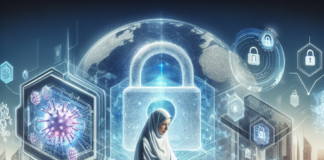The future of socializing may no longer require your physical presence—or even your voice. Meta has officially launched its next-generation AI avatars, blurring the lines between human connection and artificial interaction. These digital personas are not just animated filters or chatbots. They’re dynamic, AI-driven replicas designed to interact, entertain, and even replace your presence online. But as we welcome this futuristic convenience, an important question surfaces: Are we trading authentic relationships for digital simulations?
What Are Meta’s AI Avatars?
Meta’s AI avatars are virtual clones of users powered by advanced artificial intelligence. Unlike static profile pictures or pre-recorded voice notes, these avatars can hold conversations, mimic facial expressions in real time, and even attend virtual meetings or parties on your behalf. Backed by Meta’s large language models (LLMs), these avatars can learn your speech patterns, preferences, and mannerisms—making them eerily human.
These aren’t just tools for fun. Meta envisions a world where your AI avatar might:
- Handle customer service calls for your business
- Chat with your friends when you’re offline
- Attend work meetings or networking events
- Appear in virtual reality (VR) spaces and metaverse platforms
Convenience or Concern?
There’s no doubt this is groundbreaking tech. Who wouldn’t want an avatar that can take care of errands or socialize on their behalf during burnout days? It’s like having a digital twin that never sleeps.
But the implications run deeper.
- Emotional Substitution
If AI avatars can express empathy, humor, and concern convincingly, will people begin to rely on them for emotional support—perhaps more than actual friends? - Loss of Authenticity
Social media already encourages curated, filtered identities. With AI avatars, we risk creating fully artificial personalities that interact with other avatars instead of real people. Are we on the verge of digital masks becoming the default? - Data and Privacy Risks
For avatars to feel real, they need access to massive amounts of personal data: your voice, facial expressions, interests, and even conversations. Who owns that data? Can it be used against you?
The Social Shift Already Happening
We’ve already seen the early signs:
- Virtual influencers on Instagram and TikTok amassing millions of followers
- AI-generated YouTubers with scripted personalities
- ChatGPT-based friends and therapists offering comfort and advice
Meta’s avatars are just the next logical step. But unlike previous tools, these are being integrated into the social core of platforms like Instagram, Facebook, and Horizon Worlds.
If a friend messages your AI avatar and gets a thoughtful reply, how different is that from messaging you?
Will This Replace Real Interaction?
The short answer? Not yet—but it’s complicated.
AI avatars are likely to become extensions of ourselves rather than replacements in the short term. However, as people become more comfortable with digital surrogates and as AI gets better at mimicking human nuance, there’s a real risk of emotional detachment from physical or live interactions.
Especially for younger generations growing up in mixed-reality environments, this tech might not feel like a tool—they may view it as part of their identity.
What Comes Next?
Meta’s AI avatars are just the beginning. The future may bring:
- Personalized AI companions for every user
- Virtual communities made entirely of avatars
- Blurred lines between human-led and AI-led conversations
The key question we need to ask ourselves is not “Can this replace social interaction?”—but rather, “Should it?”
Because while technology is evolving faster than ever, the human need for real connection, emotion, and presence may not be so easy to simulate—or replace.
Final Thoughts
Meta’s AI avatars represent both a leap forward and a warning. If used with awareness and responsibility, they could revolutionize accessibility, productivity, and online presence. But if embraced blindly, they risk deepening social disconnection in an already fragmented digital world.
To get More related updates, Click Here



